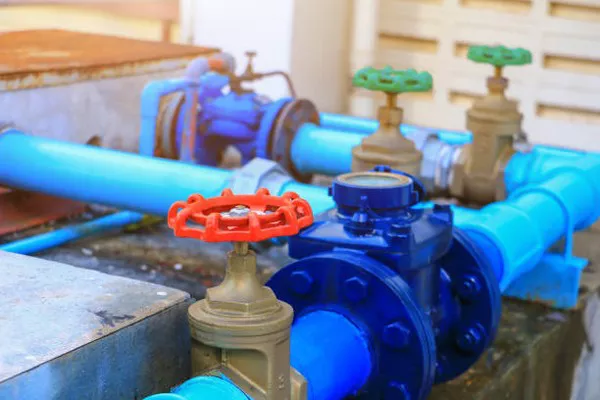In various industrial processes, accurate measurement and control of fluid flow are essential for ensuring efficiency, safety, and quality. Mass flow meters play a pivotal role in achieving these objectives by providing precise measurements of the mass of fluids passing through a system. This article delves into the intricacies of mass flow meters, explaining their principles of operation, types, applications, and advantages.
Principles of Operation
At its core, a mass flow meter is designed to measure the mass of a fluid passing through it, irrespective of its properties like density, viscosity, or temperature. This makes mass flow meters particularly advantageous in scenarios where accurate measurements are required, even in the presence of varying fluid characteristics.
The principle behind the operation of mass flow meters is based on the conservation of mass and the relationship between mass flow rate and volumetric flow rate. In a mass flow meter, the fluid is directed through a flow path, often a tube or a pipe, where its mass is measured directly or indirectly. There are several methods employed to achieve this measurement, each with its own advantages and limitations.
Types of Mass Flow Meters
1. Coriolis Flow Meters:
Coriolis flow meters operate on the Coriolis effect, which involves the deflection of a fluid-filled tube when subjected to flow. Fluid passing through a vibrating tube induces a phase shift in the oscillation of the tube, which is directly proportional to the mass flow rate. Coriolis flow meters are renowned for their accuracy and versatility, making them suitable for a wide range of applications, from chemical and food processing to pharmaceutical industries.
2. Thermal Mass Flow Meters:
These meters exploit the heat transfer principle to measure mass flow. A heated element is placed in the fluid stream, and the heat dissipation is proportional to the mass flow rate. By measuring the temperature difference between the heated element and the fluid, the mass flow rate can be accurately determined. Thermal mass flow meters are commonly used in applications like gas flow measurement and HVAC systems.
3. Differential Pressure Flow Meters:
Utilizing the Bernoulli’s principle, differential pressure flow meters measure the pressure difference across a constriction in the flow path. This pressure difference is then correlated to the mass flow rate using empirical equations. Orifice plates, venturi tubes, and flow nozzles are common devices used in this category. Although widely used, these meters might require careful calibration due to their sensitivity to fluid properties.
4. Correlation Flow Meters:
These meters are based on the correlation between fluid velocity and flow rate. Ultrasonic and electromagnetic flow meters fall into this category. Ultrasonic flow meters utilize the time taken for an ultrasonic signal to travel upstream and downstream through the fluid, while electromagnetic flow meters exploit Faraday’s law of electromagnetic induction to measure the induced voltage across a conductive fluid.
Applications and Advantages
Mass flow meters find applications across a broad spectrum of industries due to their accuracy and versatility. Some notable applications include:
Chemical Industry: Mass flow meters are used for precise dosing of chemicals, ensuring accurate mixtures in various chemical processes. They play a crucial role in achieving consistent product quality and minimizing waste.
Food and Beverage Industry: In the food and beverage sector, mass flow meters are utilized for measuring ingredients in recipes, controlling blending processes, and monitoring the flow of beverages and liquids. This guarantees the consistency of taste and texture in food products.
Pharmaceutical Industry: Mass flow meters assist in the accurate dispensing of pharmaceutical ingredients, making them vital for ensuring the potency and safety of medications. They are also employed in research and development to optimize processes and formulations.
Energy Management: In energy management applications, such as in heating, ventilation, and air conditioning (HVAC) systems, mass flow meters are employed to measure the flow of gases and liquids. This helps in optimizing energy consumption and maintaining comfortable indoor environments.
The advantages of using mass flow meters are manifold:
Accurate Measurements: Mass flow meters provide direct measurements of mass flow rate, unaffected by changes in fluid properties. This accuracy is particularly beneficial in critical processes that require precise control.
Versatility: Mass flow meters can handle a wide range of fluids, from gases to liquids with varying densities and viscosities, making them suitable for diverse industries and applications.
Low Pressure Drop: Many mass flow meters have minimal impact on the flow system’s pressure, ensuring that the fluid’s characteristics remain undisturbed.
Real-time Data: Mass flow meters provide real-time measurements, enabling operators to monitor and adjust processes promptly for optimum efficiency.
Challenges and Considerations
While mass flow meters offer significant advantages, there are challenges and considerations to be aware of:
Cost: Some advanced mass flow meter technologies, like Coriolis meters, can be relatively expensive to purchase and install. However, their accuracy and long-term benefits often justify the investment.
Maintenance: Regular maintenance is essential to ensure the continued accuracy of mass flow meters. The presence of impurities, particulates, or corrosive fluids can affect their performance over time.
Fluid Compatibility: Careful consideration is required when selecting a mass flow meter for a specific application. Some meters may not be suitable for aggressive or corrosive fluids.
Conclusion
Mass flow meters are integral components of modern industrial processes that require accurate and reliable measurement and control of fluid flow. Through various principles of operation, such as Coriolis effects, heat transfer, and differential pressure, these meters offer unmatched accuracy and versatility. From the chemical industry to energy management, mass flow meters find applications across diverse sectors, contributing to improved efficiency, product quality, and safety. While challenges like cost and maintenance exist, the benefits of using mass flow meters undoubtedly outweigh these concerns, making them indispensable tools in the arsenal of industries aiming for precision and optimization.

